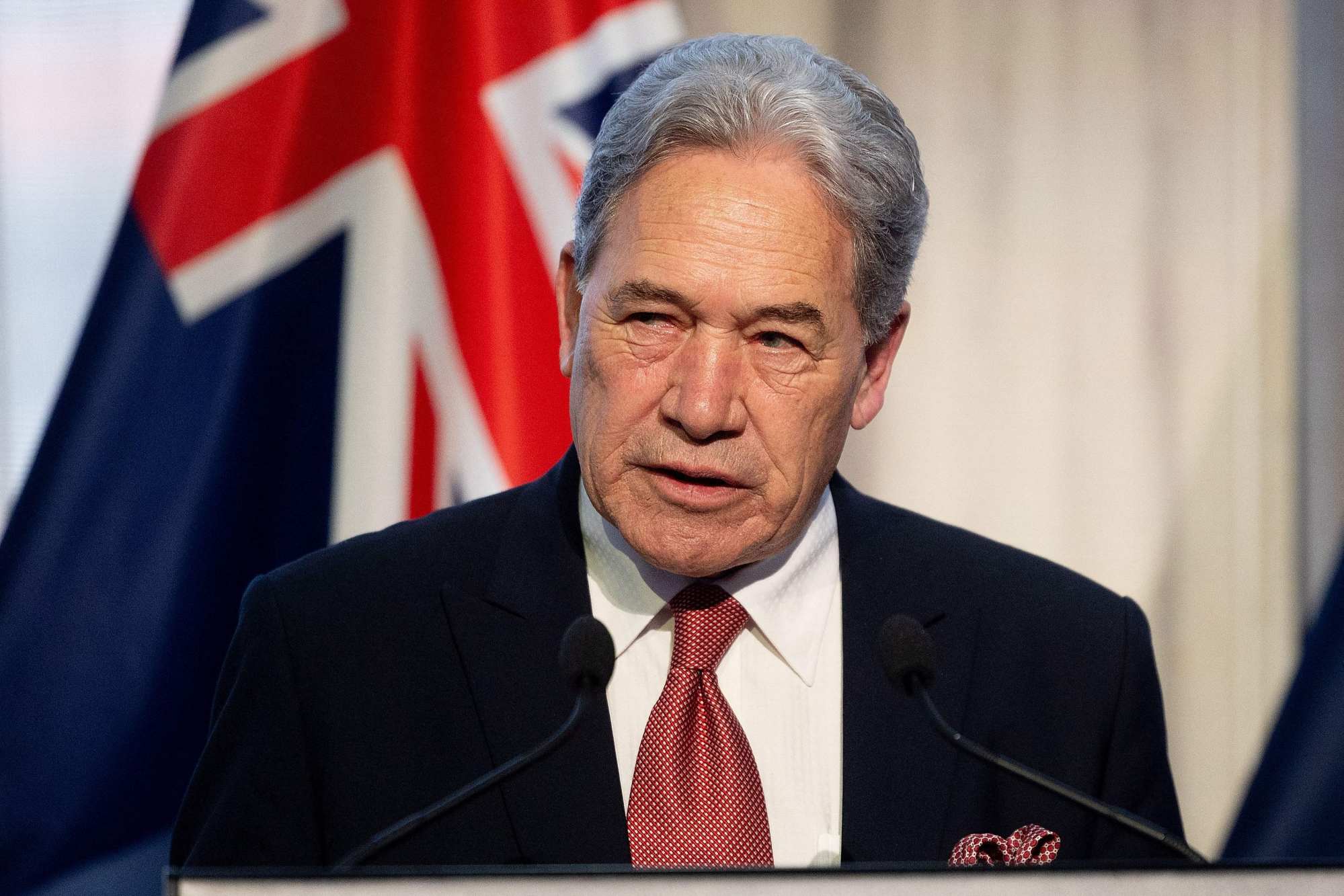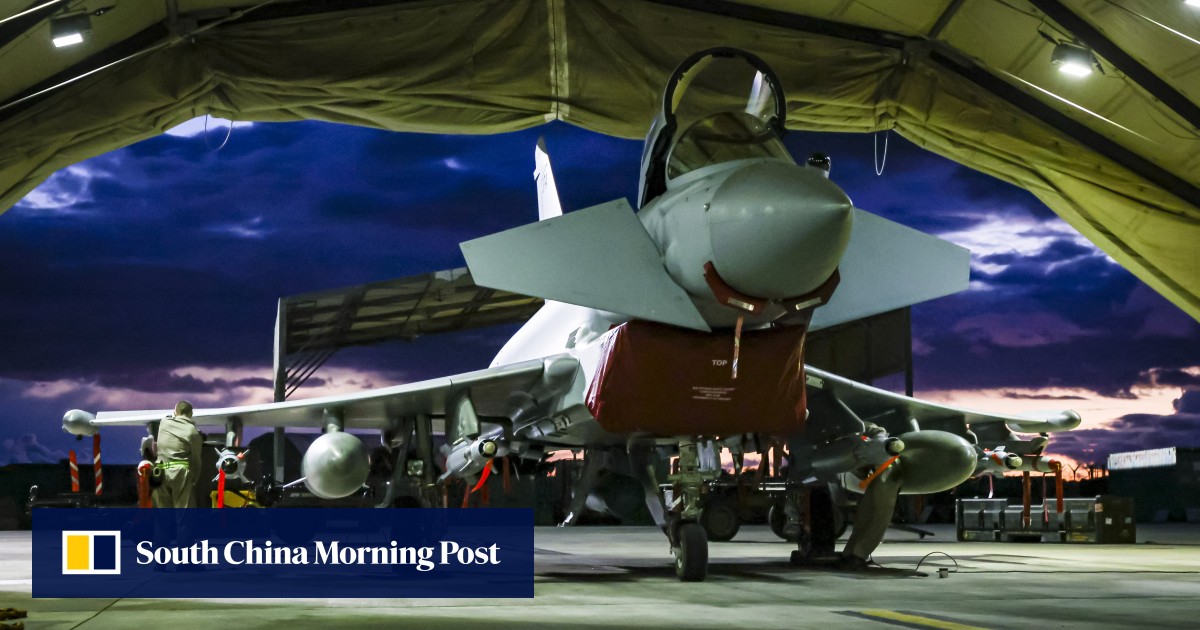Describing the dispatch of the defence force as an apparent “U-turn”, Robert Patman, professor of international relations at the University of Otago, said the move strengthened the impression among the international community that New Zealand had “retreated from an independent, principled foreign policy to one that is in closer alignment with the US”.
“[This] risks real reputational damage in diplomatic terms,” Patman said, adding that the deployment “does not sit comfortably” with Wellington’s previous diplomacy towards the Gaza conflict, when it twice backed United Nations General Assembly resolutions in calling for an immediate humanitarian truce and ceasefire.
Any further tilt to the US could complicate New Zealand’s relations with its biggest export market, namely, China
“Any further tilt to the US could complicate New Zealand’s relations with its biggest export market, namely, China,” Patman added.
Geoffrey Miller, a New Zealand geopolitical analyst at the Democracy Project, said that while the New Zealand defence team was small, the country was offering something even more valuable to the anti-Houthi coalition: “Its good reputation and good name that it has built up over decades.”
He added: “It is the symbolism that matters.”
Pointing to the government’s “rather cynical and clever” communications strategy for the deployment, Miller said that Prime Minister Luxon and Foreign Minister Winston Peters “both muddied the waters” by putting the anti-Houthi operation in the same category as the country’s past multilateral deployments to the Middle East.
Asian exporters face more Red Sea risks after US-led attacks on Houthis
Asian exporters face more Red Sea risks after US-led attacks on Houthis
Luxon said “choosing to support action in the Middle East is not unusual for New Zealand”, while Peters said “support for maritime security in the Middle East is not new”.
“But there is a world of difference between New Zealand’s previous deployments to the Middle East, which have nearly always been UN-mandated or have least been part of broader-based and far less controversial coalitions,” Miller said, citing the Combined Maritime Forces in Bahrain and the anti-Islamic State (Isis) coalition.
The former refers to the 41-nation maritime partnership based in Bahrain that undertakes counterterrorism and counter-piracy operations, while the latter is an alliance of 86 countries committed to the goal of eliminating the threat posed by Isis, the transnational jihadist group.
Miller said the new anti-Houthi coalition was very different as it was made up of a very small group of countries and represented “the sharpest, most hawkish end of the US response to the chaos unfolding in the Middle East”.
Apart from the US and Britain, the grouping includes Bahrain, Canada, France, Italy, and the Seychelles.
“The New Zealand government’s position of ‘there’s nothing new to see here’ simply does not ring true. For New Zealand, which opposed the Iraq War in 2003, it is most certainly uncharted and unfamiliar territory,” Miller said.

Miller said New Zealand could put its independent stance and reputation to good use by focusing on de-escalation in the Middle East, where its good reputation was strengthened in 2019 when then prime minister Jacinda Ardern reacted compassionately to the Christchurch terrorist attacks which killed 51 Muslims, as well as “decades of even-handedness on the Israeli-Palestinian issue”.
However, David Capie, director of the Centre for Strategic Studies and associate professor in international relations at the Victoria University of Wellington, said it was too early to conclude that Luxon’s government was pursuing some sort of “wholesale retreat into the Anglosphere”.
“They certainly want to deepen ties with traditional security partners, given the much more dangerous world we’re living in,” Capie said, noting that the Pacific still loomed large in New Zealand’s foreign and defence policy.

Capie added that one reason the government’s deployment was criticised was due to the contrast between “wanting to act boldly against the Houthis but saying virtually nothing over the summer break about the unfolding humanitarian disaster in Gaza”.
“No one wants a wider war in the Middle East, but … there is a recognition that Wellington has limited ability to influence events on the ground,” Capie said, adding that most New Zealanders understood that as a small distant trading nation, the country had a strong national interest in preventing indiscriminate attacks on international shipping.
A joint statement released by the US Department of Defence last Saturday confirmed that New Zealand was involved in supporting US-UK strikes against 36 Houthi targets in 13 locations in Yemen.
The statement claimed that the strikes were intended to “de-escalate tensions and restore stability in the Red Sea”.
“But that remains to be seen,” Patman said, noting that such strikes had not deterred attacks against commercial shipping.

